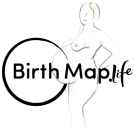
Breastfeeding supporters are often criticised for forcing the issue, or ‘guilting’ mums in some way.
They may even be accused of having some sort of agenda.
It is important to see through this to the facts beneath it.
- Breastfeeding is biologically normal.
- The breastfeeding supporter does not stand to benefit personally, the goal is to ensure mothers can make informed decisions and gain genuine support.
- Studies show that the far majority of women WANT to breastfeed.
So why is breastfeeding ‘alternative’ behaviour?
Factors affecting the drop off in breastfeeding rates include:
- lack of support to establish and continue
- lack of support if returning to work
- lack of real information
- culturally bias ideas of what is right
- pressure to be a certain way
- sexualisation of the breast and
- devaluation of motherhood (to name a few).
The formula companies benefit greatly from ‘failed’ breastfeeding and women choosing to not breastfed. So it is unsurprising that breastmilk and breastfeeding are subject to research conducted by formula companies. Some of it is good research – but the companies use it to maximise profits. By understanding how breastfeeding works and the many wonderful properties of breastmilk and developmental advantages of breastfeeding, the companies can better undermine breastfeeding and normalise formula and bottles. They can market breastfeeding by focusing on the difficulties and offering their ‘easy solutions’, and ‘support’. You don’t need to feel guilty, the company can provide you with the next best thing. Just as baby sleep trainers promise the confused and sleep deprived parents a ‘quick fix’ (for a big fee), formula companies offer relief. But it does not come without a price. Not only will you be out of pocket (estimates are over $2000 for a year of formula per baby, plus equipment) but the risks that come with this are well documented. These risks should be understood and weighed up with personal circumstances in order to make an informed decision.
THE RESEARCH/INFORMATION/FACTS:
It is not just companies sponsoring research. There are many reputable research institutes independently looking into breastmilk and breastfeeding, with the view to support and encourage mothers. One such institute is the Human Lactation Research Group based at the University of Western Australia in Perth.
The Human Lactation Research Group has worked out many things, including how to maximise expressing for preterm infants and the discovery of stem cells in breastmilk.
The discovery of stem cells is particularly interesting. Do they provide benefit for babies (immediate and long term)? or are they broken down in digestion? Do they provide benefit to mum? Is it these stem cells that provide the reduced chance of breast cancer?
Aside from this new, and exciting research, there is already much known and backed by solid research:
We know that other than nutrition, breastmilk provides immunological benefits. If the mother is exposed to a virus or bacteria, the milk will adapt to provide protection for the baby. Breastmilk also has pain relieving qualities, which may be enhanced by directly feeding the bay (physical comfort, through closeness, but also the action of feeding). We also know that the action of breastfeeding, helps the baby develop (brain, sight, speech) and gives the baby comfort and reassurance.
Professor Amy Brown is an excellent source of information.
If breastfeeding is normal – and weaning naturally occurs between 2.5 and 7 years in humans – then not following biologically normal processes can lead to biologically abnormal results. Studies suggest this risk is lower IQ (perhaps more noticeable when IQ is naturally low, if it is naturally high a few IQ points might not be noticed), increased chance of obesity, diabetes, allergy, potential speech delays and ear infection in the child, increased chance of breast cancer in the mum. (see also this post about breastfeeding past preschool)
MARKETING
The main challenge to breastfeeding is not really lack of information about why breastfeeding matters…it is generally understood that breastfeeding is important. However, the ‘Breast is Best’ mantra has been warped by marketing by creating a feeling that formula is normal, and breast is a bonus. The ‘Fed is Best’ campaign is concerning. This leads to a cultural acceptance, lack of support and encouragement and for some a preference for the ‘scientific’ advantages. (read about science vs technology here)
This is where the warning comes in:
Just as with birth (and sleep), breastfeeding has shifted from the biological to the technical. This shift means intervention is viewed as necessary, problems as common and often insurmountable. Technology appears to provide solutions to these biological problems…but in reality the technology has led to marketing of problems and solutions that in most cases do not require products, but knowledgeable and empathetic support.
In addition to this cultural shift towards the technical, there is a loss of genuine breastfeeding knowledge and support in the community. Genuine support needs to have a biological understanding of breastfeeding, an empathetic understanding of an individual’s breastfeeding culture and needs and TIME to be with the mother in need.
The reality is that because there is so much more to a child’s development than simply the milk, formula can never be considered an equal choice.
Breastfeeding matters. It needs PROTECTION not promotion.
The research supports it.
The rest is marketing.

